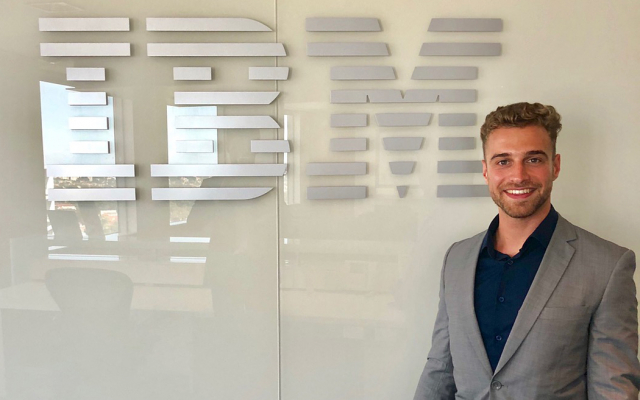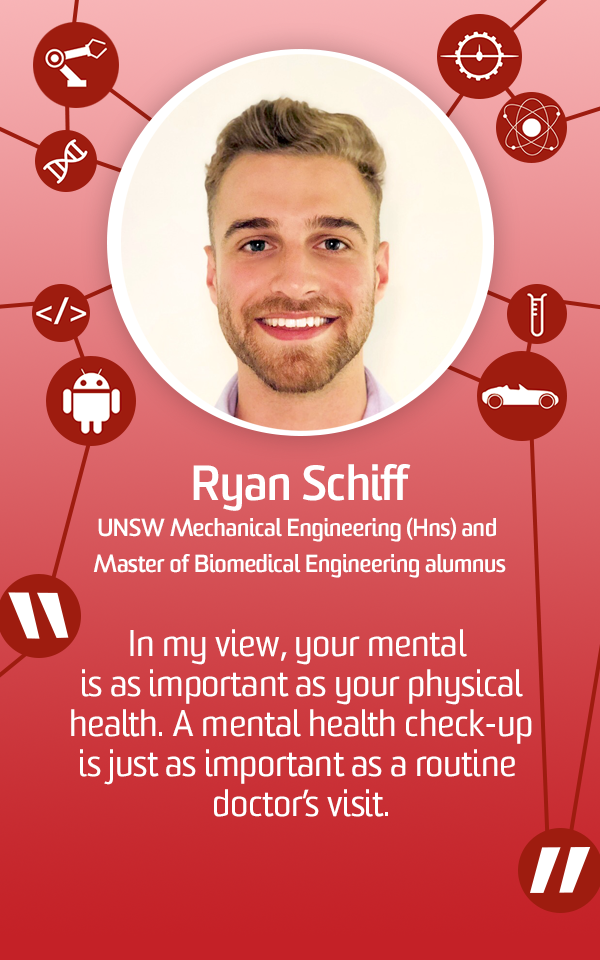
Studying engineering at university is never easy, and there are times that every student wants to give up. Now that I’ve completed my studies, I can say there were some subjects and assignments that shook my confidence and had me doubt about my capabilities. I remember a particular subject in 2nd year that had a high failure rate and was notorious for its level of difficulty. Having failed both mid semester exams (and badly failed at that), I was extremely stressed that if I did not pass the final, I would have to retake the subject which would set back my graduation timeline. I can recall another time when I had some personal challenges outside of university that were impacting my ability to focus around exam time and my grades and mental health were suffering.
I’m now a graduate consultant at IBM, working with institutional clients to help solve their business and technology challenges. I rotate between roles such as a Business Analyst, Software tester and Project Management, using engineering skills and problem-solving methodology. I get to design and implement solutions to a diverse range of business and technical problems and see the outcome they have. But just a few months ago, I was a UNSW Engineering student studying Bachelor of Mechanical Engineering (Hons) and a Master of Biomedical Engineering.
I loved getting involved in Uni life and working with teams on projects where I could make a difference in students’ lives. As a part of this, I was an active member of Engineering World Health (EWH). EWH a charity/society that provides free education resources to disadvantaged communities, engages students with STEM outreach in high schools and run a design competition investigating low cost biomedical equipment. In my time there I was elected Co-President, oversaw the educational portfolio and developed a high school outreach program.
In my final year, I was elected as the Industry Representative for MechSoc. I helped establish a Graduate Industry Cocktail night and form new connections with industry partners. This role also helped me land a job at IBM.
Balancing student life with coursework and personal commitments is challenging and so, as a firm believer in the importance of mental health check-ups I soon began seeing a psychologist at CAPS 1-2 times a semester. I had discovered CAPS during my first O’Week as I was learning about UNSW and the services on offer to students. My experiences with CAPS were always very professional and reassuring.
I continued to visit CAPS throughout university. I found talking to an unbiased professional very comforting and being able to express emotions fully without judgement is freeing. If I could pass on any of the lessons I took away from CAPS, I’d say;
- Know that is it ok not to be ok.
- Look out for your friends and peers. Engineering is hard for everyone. My mates and I looked out for each other and we all succeeded.
- Anxiety and depression are completely normal feelings, and I’ve found opening up to people has improved my mental health and brought me closer to friends.
I would highly recommend all students to partake in some of the CAPS workshops or visit a psychologist (this is a free service). They run mindfulness workshops which are an excellent way to destress, declutter the mind and find reprieve from day to day challenges. They run for an hour and were like a mental health oasis in the middle of the day. The skills I learnt here I still use today at work.
In my view, your mental health is as important as your physical health. A mental health check-up is just as important as a routine doctor's visit. CAPS also helped me learn how to prioritise my values and understand how I can bring my best true self to the table.
UNSW Counselling and Psychological Services [CAPS] are a free and confidential service available to help students while they are residing in Australia. Their services include counselling, support and transition to university, psychological services, anxiety, mood and stress management programs. They also offer online self-help guides and newsletters, programs and workshops. Check them out at https://student.unsw.edu.au/counselling.
